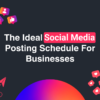
5 Questions You Can’t Skip When Hiring a Digital Marketing Agency – Essential Guide for Making the Right Choice
In the ever-evolving digital landscape, finding the right digital marketing agency can feel a bit like finding a needle in a haystack. It’s not just about boosting online visibility or piling up clicks, it’s about genuinely grasping what makes a brand tick.
The right partnership can propel your business to new heights, opening doors you didn’t even know existed. On the flip side, making the wrong choice? Well, that can be a costly misstep. Think of time wasted, resources drained, and opportunities missed. Imagine investing in a long voyage only to realize you’re on the wrong ship.
Now, we are not here to scare you but rather to guide you. Let’s navigate this digital maze together. If you’re thinking about hiring a digital marketing agency, there are some critical questions you simply can’t skip. Let’s dive in!
What Is Your Experience In My Industry?
When diving into the hiring process, the most pivotal question among the 5 questions you can’t skip when hiring a digital marketing agency zeroes in on industry experience. Every industry presents its own unique landscape within the vast territory of digital marketing, each with its distinct topography. Thus, asking this is not merely important, but vital.
Specific industry experience does more than just apply general knowledge. It means understanding the subtle differences, the specialized language, the particularities of audience behavior, and confronting the specific challenges companies face in that domain. Here, industry knowledge isn’t just a bonus; it’s a transformative tool, turning broad strategies into sharply focused, relevant approaches.
For instance, the strategies that work wonders for e-commerce might fall flat for a B2B tech startup. Just as you wouldn’t wear hiking boots to a formal dinner, using a mismatched digital marketing strategy can lead to awkward (and costly) missteps. When an agency has a track record in your industry, they’re not starting from square one; they’re building on a foundation of insights and successes.
Case studies and past results stand out as the golden tickets in this scenario, providing tangible proof of an agency’s prowess not only in knowledge but also in execution. These elements illuminate how the agency has transformed challenges into opportunities, converting theoretical strategies into tangible, measurable outcomes. They reveal whether conversions were increased for competitors or if engagement was elevated for brands with similar profiles and needs.
Beyond success stories, understanding the hurdles they’ve encountered is equally enlightening. It’s in facing adversity that true expertise shines. Maybe they’ve tackled a PR crisis, turned around a failing campaign, or innovated when faced with budget cuts. Their past challenges and their approach to resolving them give you a window into their resilience, creativity, and commitment.
How Do You Measure Success And Report Results?
Ensuring your digital marketing hits the mark means closely watching your campaign’s impact. Without the right metrics, your strategy might wander, missing key goals. That’s where Key Performance Indicators (KPIs) shine. They’re not just numbers but critical signals, revealing the well-being, strength, and success of your marketing efforts, ensuring you’re always moving in the right direction and making adjustments as needed.
Every campaign’s KPIs should be tailored to its specific objectives. If you’re looking to boost brand awareness, then perhaps engagement rates and brand mentions are your go-to KPIs. Aiming for sales? Conversion rates and ROI might top your list. Thus, when hiring a digital marketing agency, it’s vital to ascertain how they prioritize and track these indicators.
But tracking is just one part of the equation. Effective communication about these metrics is just as crucial. Regular updates and comprehensive reports should be a standard offering, not an ‘add-on’. These reports shouldn’t just be a barrage of numbers but a clear narrative, explaining the trajectory of the campaign, what worked, what didn’t, and the way forward.
Delving deeper, it’s essential to understand the tools and software the agency relies on for tracking and analytics. Platforms like Google Analytics, HubSpot, or SEMrush are industry standards, offering detailed insights. An agency’s proficiency with these tools is evidence of its commitment to precision and efficiency.
Transitioning from tools to tangible results, we encounter a vital distinction: vanity metrics versus meaningful metrics. While a boost in social media followers or page views can be enticing and seemingly positive, these numbers may only offer superficial satisfaction.
They might provide an attractive narrative without ensuring substantial real-world results. An adept agency can differentiate between metrics that merely ‘appear impressive’ and those that genuinely indicate impact, safeguarding initiatives from being derailed by the pursuit of hollow numbers.
Measuring success in digital marketing isn’t a generic template applied uniformly. It’s akin to a tailored suit, meticulously crafted to align with your brand’s objectives, guaranteeing that every action taken resonates with purpose and yields genuine impact.
Who Will Be Working On My Account And How Will Communication Occur?
Engaging with a digital marketing agency extends beyond simply employing a service; it’s about forging a partnership. Just as you’d want to know the credentials of a surgeon before an operation, understanding the composition of the agency team that’ll handle your account is paramount.
First and foremost, the team structure gives you a glimpse into the agency’s operations. Will there be dedicated strategists plotting the course? How about content creators weaving the narratives, or ad specialists ensuring each dollar is well-spent? Recognizing these roles is crucial because it clarifies the expertise and resources the agency is dedicating to your brand.
Central to this ensemble is the role of a dedicated account manager. Consider them as the pivotal anchor, ensuring all aspects of the campaign work in synchrony for optimal outcomes. This person is your primary touchpoint, responsible for understanding your needs, addressing concerns, and keeping you in the loop. Their role signifies the agency’s commitment to personalized service and seamless coordination.
Now, onto the lifeline of any partnership: communication. Knowing the frequency and modes of communication is essential to set expectations. Whether it’s weekly updates, monthly reviews, or quarterly strategy sessions, regular check-ins ensure alignment and foster trust.
Additionally, understanding if these interactions will be through emails, calls, video meetings, or in-person sessions helps in gauging the agency’s adaptability and commitment to transparency.
In essence, diving deep into the ‘who’ and ‘how’ of the agency’s operations is more than just logistical clarity. It’s about understanding their work essence, ensuring that you’re not just another client on a roster but a valued partner. After all, successful digital marketing is a cohesive effort. Being familiar with your partners ensures alignment and coordination, every step of the way.
How Flexible Are Your Strategies And What Happens If Results Aren’t Met?
The digital world is a lot like weather patterns: ever-changing and often unpredictable. Just when you think you’ve got the forecast down, comes a storm or an unexpected sunny spell. In this dynamic landscape, a rigid strategy is as effective as a paper umbrella in heavy rain. Hence, flexibility isn’t just an admirable trait; it’s a requisite.
Agility and adaptability in digital strategies mean that an agency isn’t married to a plan just because it looks good on paper. They’re willing to pivot, reassess, and realign based on real-time data, feedback, and unforeseen challenges. Imagine an ad campaign that kicks off with a bang but soon sees a drop in engagement. A flexible agency should be able to change up the content, try reaching different people, or even switch platforms to get things moving again.
Moving forward, ensuring that there is a structured pathway for what happens if KPIs and results aren’t met is pivotal. Agreements should ideally incorporate clauses for performance-based reassessment and strategy shifts. This doesn’t just bind the agency to accountability but also instills a proactive approach towards finding solutions when the road gets rocky.
Moreover, how the agency handles unforeseen challenges — be it algorithm alterations by search engines or sudden industry disruptions — provides insight into its resilience and innovation. Can they re-strategize on the fly? How quickly can they mobilize their team to alter the course?
The online world is always changing. So, a good agency needs to be quick on its feet, ready to adapt, and think outside the box. When choosing a partner, remember that being flexible isn’t just a nice-to-have, it’s a must-have.
How Do You Stay Updated With The Latest Trends And Technologies?
Dip your toes in the digital marketing waters, and you’ll soon realize it’s an ocean of ceaseless currents, where today’s trend can become tomorrow’s artifact. In such a rapidly evolving space, an agency’s adaptability isn’t just about strategy flexibility, but also their commitment to staying abreast of the latest waves.
Continuous learning and development for agency personnel are non-negotiable. Strategies and tools that were popular or relevant a year ago might already be outdated. Hence, it’s imperative to inquire about an agency’s investment in their team’s growth. Are they encouraging their staff to attend workshops, webinars, or conferences? Are they allocating time and resources for skill upgrades?
Certifications and affiliations can also serve as indicators of an agency’s commitment to their field. Collaborations with major platforms like Google, HubSpot, or Facebook suggest a nuanced understanding of these environments. Further, having certifications isn’t just about boasting logos; it’s a sign that the agency is versed in the latest industry standards and practices, ensuring your brand is in knowledgeable hands.
But it’s not just about knowledge; it’s about application. The digital toolbox is vast and varied. Leveraging the latest tools and platforms ensures that campaigns are optimized for the current digital landscape. Whether it’s a cutting-edge CRM system, a novel analytics platform, or the latest in automation tools, an agency’s tech stack can be a barometer for its modernity.
Keeping pace in the digital world is much like ensuring one’s tools are always sharp in a competition. It guarantees accuracy, efficacy, and a robust defense against rivals. As you ponder over the choice of an agency, weigh not only their current expertise but also their dedication to staying ahead. After all, in the digital sphere, the ones who adapt are the ones who triumph.
Conclusion
In the fast-moving world of digital marketing, choosing an agency is about finding a teammate, not just hiring a service. It’s more than just clicks and campaigns; it’s about finding someone who gets what your brand is all about and helping it stand out in a crowded market.
Having sifted through the 5 questions you can’t skip when hiring a digital marketing agency, recognize that these questions are pivotal, not as mere interrogatives, but as instruments steering you toward an agency that echoes your brand’s voice. So, when you start this journey, remember to be picky, ask questions, and, most of all, make sure they really get what you’re trying to do. Take your time, choose carefully, and invest in a partnership that’ll help your brand story shine online!



